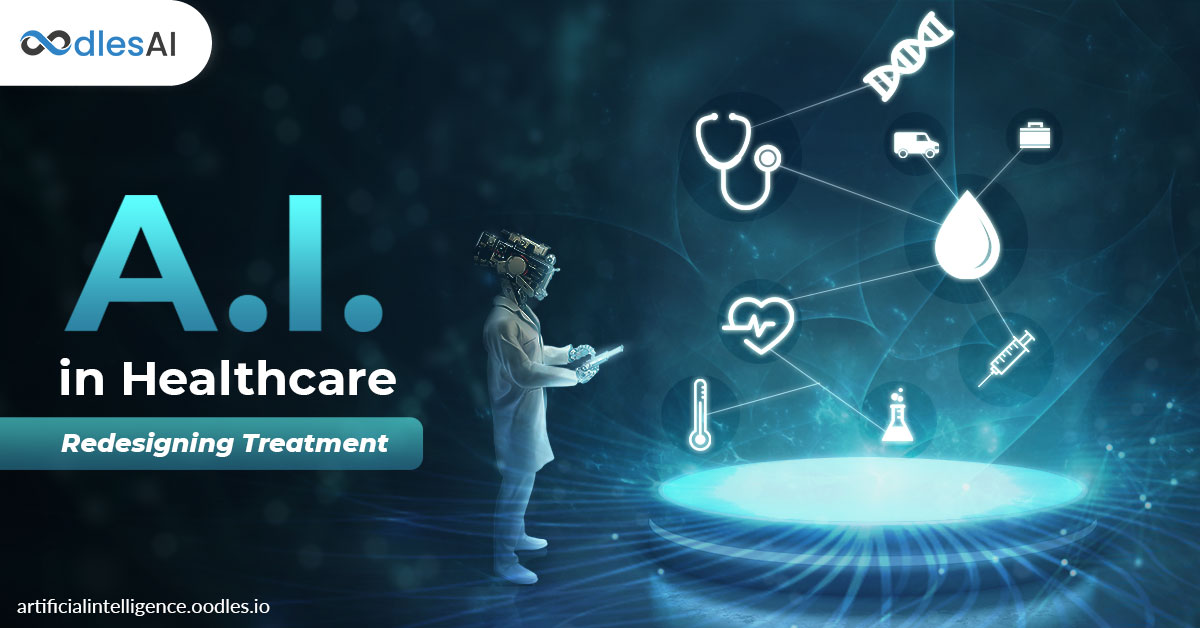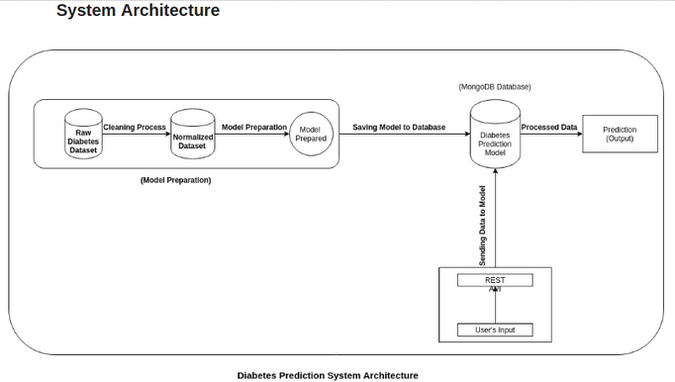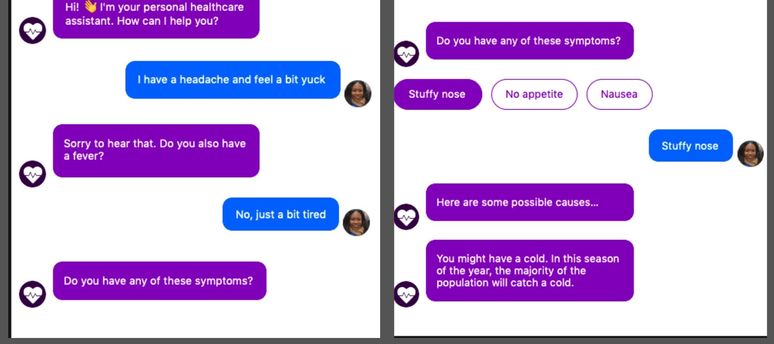How Artificial Intelligence in Healthcare is Redesigning Treatment
Sanam Malhotra | 22nd November 2019

Artificial intelligence in healthcare is poised to deploy trillion gigabytes of medical data for generating valuable insights beyond human intelligence. Business Insider Intelligence report suggests that AI spending in healthcare is expected to grow at 48% between 2017 and 2023. AI-powered machine learning models are improving the diagnostic abilities of doctors and ensuring effective deliverability of treatment with dynamic machine learning models.
This blog post explores how healthcare providers are using AI development services to mitigate medical challenges efficiently.
Predicting Health Risks
Machines are beginning to surpass human foresightedness with advanced algorithms. Under AI’s vast umbrella, machine learning algorithms are capable of sifting through unstructured data and identifying patterns to generate relevant insights.
Early diagnosis of health risks, diseases, and rare conditions is a major challenge for medical professionals. However, with the advent of AI’s predictive analytics techniques, doctors are able to gauge the probability of certain health risks. The underlying ML algorithms of predictive engines use patient’s Electronic Data Record (EHR) and medical reports to-
a) Predict risk of heart attacks at least 4 to 5 in advance
b) Predict death risk caused by persistent chronic diseases including diabetes and cancer
c) Prevent infectious diseases by predicting epidemic disease dynamics
Tests and studies suggest that AI can accurately predict a multitude of health-related risks and diseases for timely prevention. In addition, data scientists are working on ML models that can not only diagnose diseases but also suggest possible treatments.
Also Read- The Innovative Applications of AI in Healthcare
How does Oodles use Artificial Intelligence in healthcare to strengthen diagnosis?
We, at Oodles AI, practice data-driven predictive analysis powered by machine learning algorithms for accurate and timely prediction of health conditions. We are adept at training ML models with Electronic Health Records (EHR), 2D and 3D images to assist health institutes with automated insights.
Recently, our AI team has developed a Diabetic Prediction System using Python and machine learning libraries such as Scikit-learn and Flask. The model requires structured data inputs such as Plasma Glucose, Tricep Thickness, Blood Pressure, and other medical details to draw diabetic predictions.

The USP of this model is that it does not require any intervention of a physician to measure a person’s diabetes. The system supports a simplified interface that enables common individuals to test diabetes in a simple and accurate manner.
Improving Remote Patient Monitoring with Conversational AI
Interactions between patients and medical practitioners are a vital source of medical diagnosis and symptom analysis. However, the unavailability of proper medical facilities in remote areas drastically affects public health leading to an outbreak of deadly diseases.
The conversational potential of Artificial intelligence in healthcare is poised to combat the challenges of remote diagnostics with virtual assistants. Voice and text-based chatbots and virtual assistants represent a user-friendly medium to discuss health issues in detail. The combination of computer vision and natural language processing (NLP) capabilities of AI empowers chatbots for-
a) Remote assessment of symptoms and drug prescriptions
b) Preliminary diagnosis
c) Right health plan selection
d) Administrative workflow assistance
RASA, an open-source chatbot development framework, supports remote patient monitoring with machine learning-enabled virtual assistants.

The chatbot facilitates medical consultation for surgeries, scheduling of appointments, collection of patient feedback, onboarding new patients, and more.
Related- Improving Flow of Chatbots with RASA Events
How does Oodles AI accelerate medical diagnosis with Conversational AI?
The AI team at Oodles provides timely healthcare assistance to patients across borders with reduced administrative costs. We ensure the responsible use of critical medical data for human-like medical consultation along with the following benefits-
a) We have hands-on experience in using the RASA framework to build medical virtual assistants that assist patients with precise medical prescriptions. Our team uses historical data to train the chatbot’s algorithms for accurate matching of multiple diseases and timely solutions.

RASA bot assistant built by Oodles AI in action.
b) Our NLP services are effective at replacing time-taking manual methods to suspect adverse drug reactions (ADR) from databases and medical reports. Our deep neural network capabilities can save up to a million serious injuries and deaths due to unreported or ill-reported ADRs.
Talk to our AI development team to know more about our Artificial Intelligence Services.



